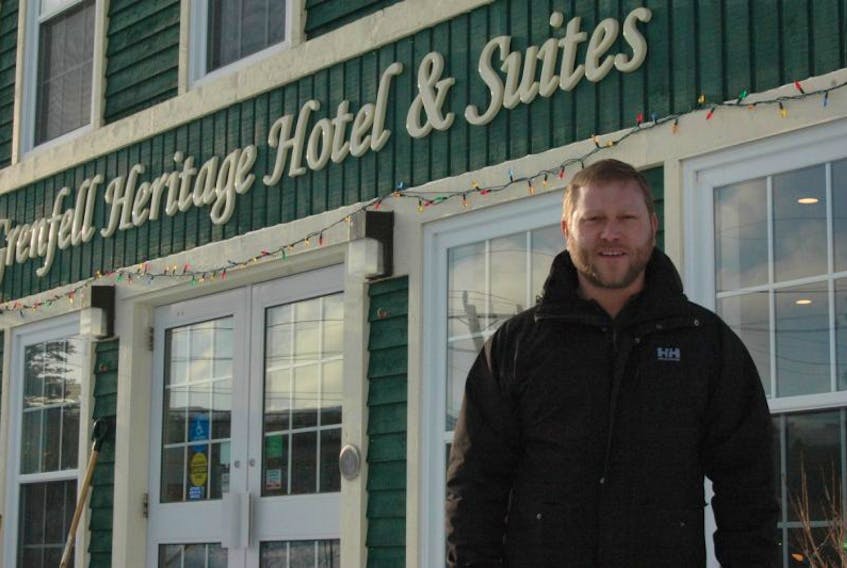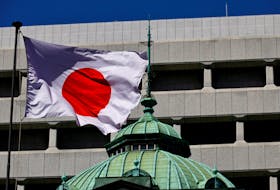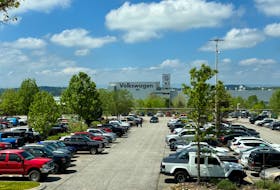“These cuts have the potential to be devastating,” says Chamber of Commerce president Desmond McDonald.
For now, McDonald feels it’s hard to determine at this point what the specific effects are going to be. Currently, he says, there is no way of knowing exactly how much income fishers will make or how many hours of work will be available for people in the processing plants.
However, in the event that jobs are lost and many workers may not be getting enough hours for unemployment insurance (EI), McDonald says there wouldn’t be as many dollars going back into the local economy.
Indeed, plant workers may even have to move elsewhere just to find jobs.
This would have an effect on the business community.
“If they don’t have dollars to spend, businesses can’t sell their products and then they don’t have dollars to spend,” explains McDonald. “In turn, this has an effect where you see people getting laid off or businesses won’t be able to hire on as many people as they traditionally do.”
McDonald also considers how shrimp fishing boats from all over the province normally land in St. Anthony, where they buy fuel, food, and other things.
If they’re not going to be around as long, because they don’t have as much quota to catch, then that’s fewer dollars going back into the economy, he said.
McDonald says the impact could be felt on everything: restaurants, grocery sales, recreation, automobile sales, etc.
He is also worried about the cuts that have hit St. Anthony Basin Resources Inc. (SABRI). Their allocation has gone from 3,000 metric tons in 2014-15 to just 468 metric tons this upcoming year.
That’s a loss of 84.4 per cent of its quota.
“SABRI invests a lot of dollars into the community, programs, to make life better for residents of our whole area,” he says. “Their ability to do that in the future is hindered now.”
Since tourism will be able to drive commerce in the summer, McDonald expects the effect of the cuts on the economy to start really being felt in the fall, after both the tourism and fishing seasons are over.
How to manage
McDonald feels that some measures can be taken to handle the challenges facing the shrimp industry and the local economy.
Given the depletion of the shrimp stocks in Shrimp Fishing Area 6 (SFA 6), he feels offshore draggers should no longer be fishing that zone.
“They have the ability to go places the inshore fishermen can’t, so as far as I’m concerned they shouldn’t be in Area 6,” he says. “They should be in other areas and leave Area 6 for the inshore fishermen who rely on (that area) more than the offshore draggers.”
According to McDonald, it’s the inshore that predominantly drives the local economy.
“They’re the people spending dollars in your community, they live in your communities,” he says. “They’re living in houses, they’re buying their heating, all the groceries at the grocery store.”
On the other hand, he says most of the offshore draggers get their product from outside the community.
“There are some people who work on the (offshore) vessels from our area, who inject dollars into our local economy,” he explains. “But the full crew from the vessel is not from our area.”
He says dollars are injected into the local economy through the inshore fishery and McDonald feels inshore fishers should get priority in SFA 6.
As for how local businesses will manage, McDonald doesn’t know where they go from here.
With a shrinking population and less revenue generated locally, he conjectures they could consider developing products for export to other parts of the country or internationally.
But these are questions that are hard to answer.
“People are still trying to wrap their heads around it,” he says. “What a business can do right now? I don’t know.”
The other hope is that maybe the federal government could open up another resource for fisherpersons to harvest, to replace the shrimp and crab.
“There’s turbot out there, there’s halibut out there, I’m hoping they’ll come back with cod,” says McDonald. “There’s a lot of other stuff out in the sea.”
For now, though, for the immediate future, there seem to be more questions than answers.









